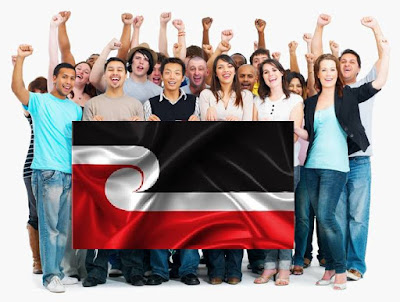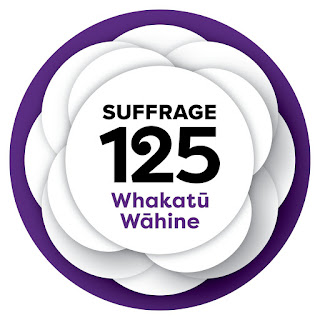Queerness and Christianity
Many people seem to think that you can't be queer, as well as Christian. Homosexuality and Christianity, seems to be a topic that churches are grappling with at the moment. I admit I have struggled hard with what probably many people see as contradictory things. However, I've come to think about what we could all (queers, Christians and everyone else) learn from queer Christians.
After throwing many figurative babies, out with many litres of bathwater, I'm not happy about writing people off anymore, or bagging them out for what they believe and who they are. The reason being, that throwing figurative babies out, means cutting people out. This often means, cutting bits of ourselves, our ancestors and our peoples, off. A really big reason for me no longer wanting to act in these ways anymore, is that my parents are Christians. They have not disowned me, or cut me off because I am queer, despite their interpretations of Christianity. So I am not about to do the same. Many queers have been marginalised by Christianity and the straight mainstream, it is a shame when we then marginalise Queers who are also Christian, and enact the same stuff that happens to us.
Another slightly different but similar extension of this dynamic, is that too often, I feel that people who have more than one marginalised identity, often get asked or pressured to choose which of them is more important. This is definitely pressure I've felt when working around issues of racism, homophobia and colonisation. Where caring about one thing seems to signal to other people, that you care more about one thing, and less about the other thing. It seems a hard thing to grasp, that the many many ways in which people are marginalised and oppressed, are interconnected on many levels. It seems a hard thing to grasp, that we are made up of many parts, all as important as the next. And further than that, all needing the other parts, to be whole. It is a challenge to not chop and choose, but to embrace all the parts of ourselves that are our truths, no matter now contradictory they might seem to others.
This has been sparked out a book ive been reading called “Religion is a Queer thing”, Elizabeth Stuart, Pilgrim Press.
“Many will no doubt claim that a book like Religion Is a Queer Thing is unnecessary. Christianity is Christianity, they will argue; there is only one version of it and it applies to all. Christianity has nothing to do with race, sexuality, class, or bodily differences. Christianity addresses us in our common humanity. This is a clever argument, not only because it immediately attempts to separate God from issues of racism, sexism, classism, and so on, and make them purely "human" concerns, but because it identifies Christianity as the theology of those who are not themselves economically or socially disadvantaged. In the name of a God who joined the struggles of human life and stood with the marginalized, gay, lesbian, bisexual, and transgendered Christians have challenged the notion of what constitutes Christianity -- and what defines a Christian -- by refusing to accept on trust that a white, straight, male Christianity is the sole Christian truth”.
Elizabeth Stuart.
It made me think about Christianity in a new light, as well as question and reflection upon the attitudes and harsh things that I've said, and heard other queer people say about Christians and queer Christians.
Growing up thinking that I was going to burn in hell forever because I loved women, was a very crappy time. It has been a long journey to heal wounds done by many peoples interpretations of Christianity, as I'm sure people all over the world have struggled to do so when Christianity has been used to justify “witch” burnings, slavery, land theft, genocide and colonisation, to just name a few. It has been a struggle to recover my spirituality, when the vehicle of religion carrying spirituality, was so wrong for me, and damaging to my being and spirit. It is understandable that queer people who have been the target of violence and prejudice, kicked out of home and disowned, killed even, in the name of Christianity would be very very wary of it. However if would be a real loss to not be able to experience our spirituality, and throw the whole lot out, based solely on an oppressive interpretation and exertion of Christianity. We are entitled to live as spiritual beings. When religion, acting as a vehicle for spirituality, is flawed, small and oppressive, it spiritually injures people. This often means that we walk away from the oppressive religion, but forget, or find it difficult to continue with our spiritual growing because the religion has been so spiritually violent. It becomes our challenge to find ways in which we can still experience our spirit when religion is not the vehicle for us.
All that said, this is also this is my roundabout ups to peoples who have suffered and struggled with a body of thought of knowledge that places them as outcasts, but have refused to accept that particular interpretation. Christianity has been used to justify all sorts of horrendous things, its has also been taken and embraced as a source of strength, rebellion and driver for social change and justice. Its served me as a reminder to look for the nuances, complexities and voices, that are not listened to, or even actively silenced, when a powerful group of people claim to speak on behalf of everyone else.
(previously published in Tumai magazine)
After throwing many figurative babies, out with many litres of bathwater, I'm not happy about writing people off anymore, or bagging them out for what they believe and who they are. The reason being, that throwing figurative babies out, means cutting people out. This often means, cutting bits of ourselves, our ancestors and our peoples, off. A really big reason for me no longer wanting to act in these ways anymore, is that my parents are Christians. They have not disowned me, or cut me off because I am queer, despite their interpretations of Christianity. So I am not about to do the same. Many queers have been marginalised by Christianity and the straight mainstream, it is a shame when we then marginalise Queers who are also Christian, and enact the same stuff that happens to us.
Another slightly different but similar extension of this dynamic, is that too often, I feel that people who have more than one marginalised identity, often get asked or pressured to choose which of them is more important. This is definitely pressure I've felt when working around issues of racism, homophobia and colonisation. Where caring about one thing seems to signal to other people, that you care more about one thing, and less about the other thing. It seems a hard thing to grasp, that the many many ways in which people are marginalised and oppressed, are interconnected on many levels. It seems a hard thing to grasp, that we are made up of many parts, all as important as the next. And further than that, all needing the other parts, to be whole. It is a challenge to not chop and choose, but to embrace all the parts of ourselves that are our truths, no matter now contradictory they might seem to others.
This has been sparked out a book ive been reading called “Religion is a Queer thing”, Elizabeth Stuart, Pilgrim Press.
“Many will no doubt claim that a book like Religion Is a Queer Thing is unnecessary. Christianity is Christianity, they will argue; there is only one version of it and it applies to all. Christianity has nothing to do with race, sexuality, class, or bodily differences. Christianity addresses us in our common humanity. This is a clever argument, not only because it immediately attempts to separate God from issues of racism, sexism, classism, and so on, and make them purely "human" concerns, but because it identifies Christianity as the theology of those who are not themselves economically or socially disadvantaged. In the name of a God who joined the struggles of human life and stood with the marginalized, gay, lesbian, bisexual, and transgendered Christians have challenged the notion of what constitutes Christianity -- and what defines a Christian -- by refusing to accept on trust that a white, straight, male Christianity is the sole Christian truth”.
Elizabeth Stuart.
It made me think about Christianity in a new light, as well as question and reflection upon the attitudes and harsh things that I've said, and heard other queer people say about Christians and queer Christians.
Growing up thinking that I was going to burn in hell forever because I loved women, was a very crappy time. It has been a long journey to heal wounds done by many peoples interpretations of Christianity, as I'm sure people all over the world have struggled to do so when Christianity has been used to justify “witch” burnings, slavery, land theft, genocide and colonisation, to just name a few. It has been a struggle to recover my spirituality, when the vehicle of religion carrying spirituality, was so wrong for me, and damaging to my being and spirit. It is understandable that queer people who have been the target of violence and prejudice, kicked out of home and disowned, killed even, in the name of Christianity would be very very wary of it. However if would be a real loss to not be able to experience our spirituality, and throw the whole lot out, based solely on an oppressive interpretation and exertion of Christianity. We are entitled to live as spiritual beings. When religion, acting as a vehicle for spirituality, is flawed, small and oppressive, it spiritually injures people. This often means that we walk away from the oppressive religion, but forget, or find it difficult to continue with our spiritual growing because the religion has been so spiritually violent. It becomes our challenge to find ways in which we can still experience our spirit when religion is not the vehicle for us.
All that said, this is also this is my roundabout ups to peoples who have suffered and struggled with a body of thought of knowledge that places them as outcasts, but have refused to accept that particular interpretation. Christianity has been used to justify all sorts of horrendous things, its has also been taken and embraced as a source of strength, rebellion and driver for social change and justice. Its served me as a reminder to look for the nuances, complexities and voices, that are not listened to, or even actively silenced, when a powerful group of people claim to speak on behalf of everyone else.
(previously published in Tumai magazine)


kia ora dumpling- i agree that we need to embrace complexity in terms of the way we get positioned/position ourselves in the world. queer christians are a brave lot, i reckon.
ReplyDeletelove this! and yes - the ability to distinguish spiritual growth from religious identity and its political complex is one that is often disregarded from purist humanists, activists, anarchists etc.. which if we want to be calculative about, has race, gender and sexuality affiliations.
ReplyDelete